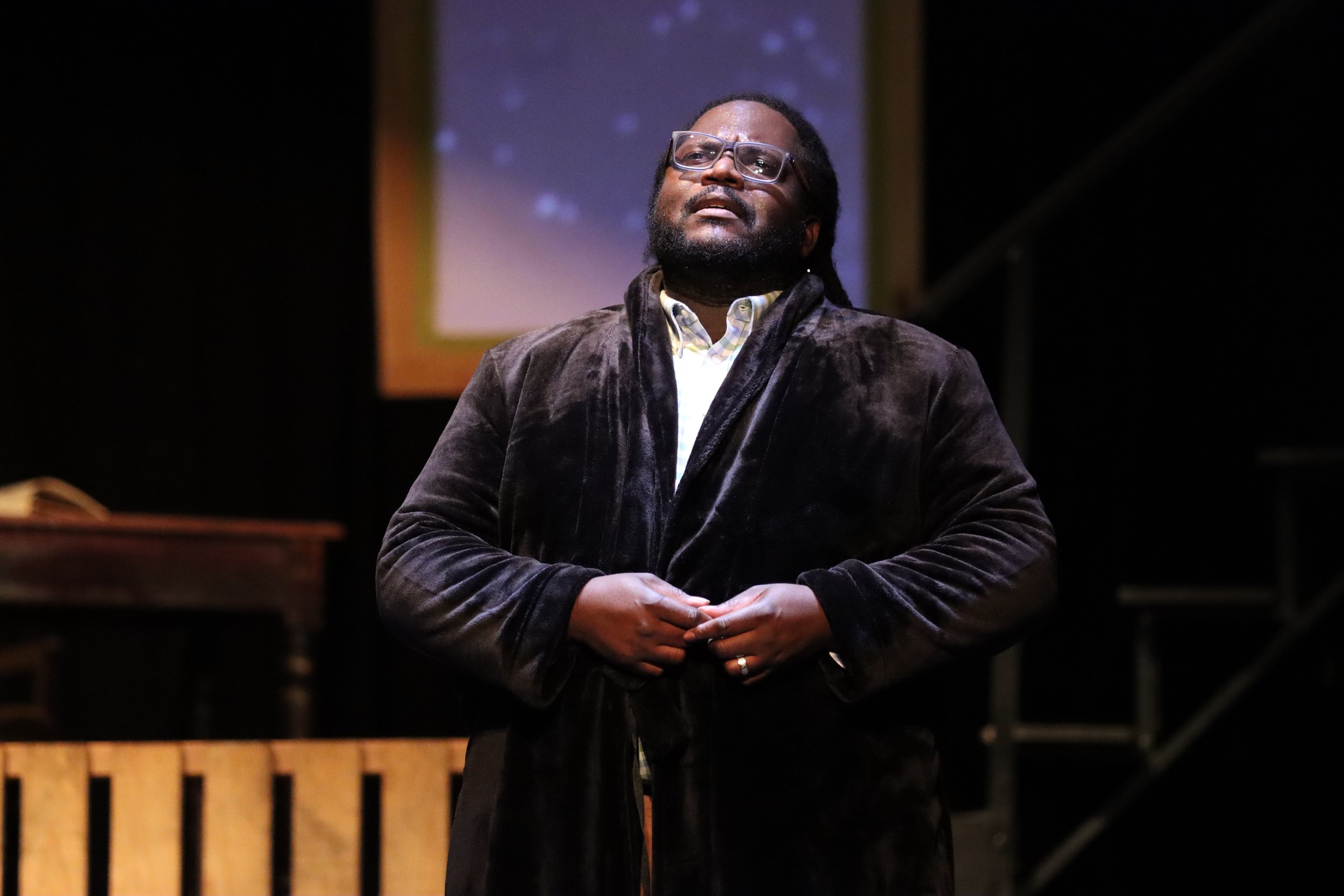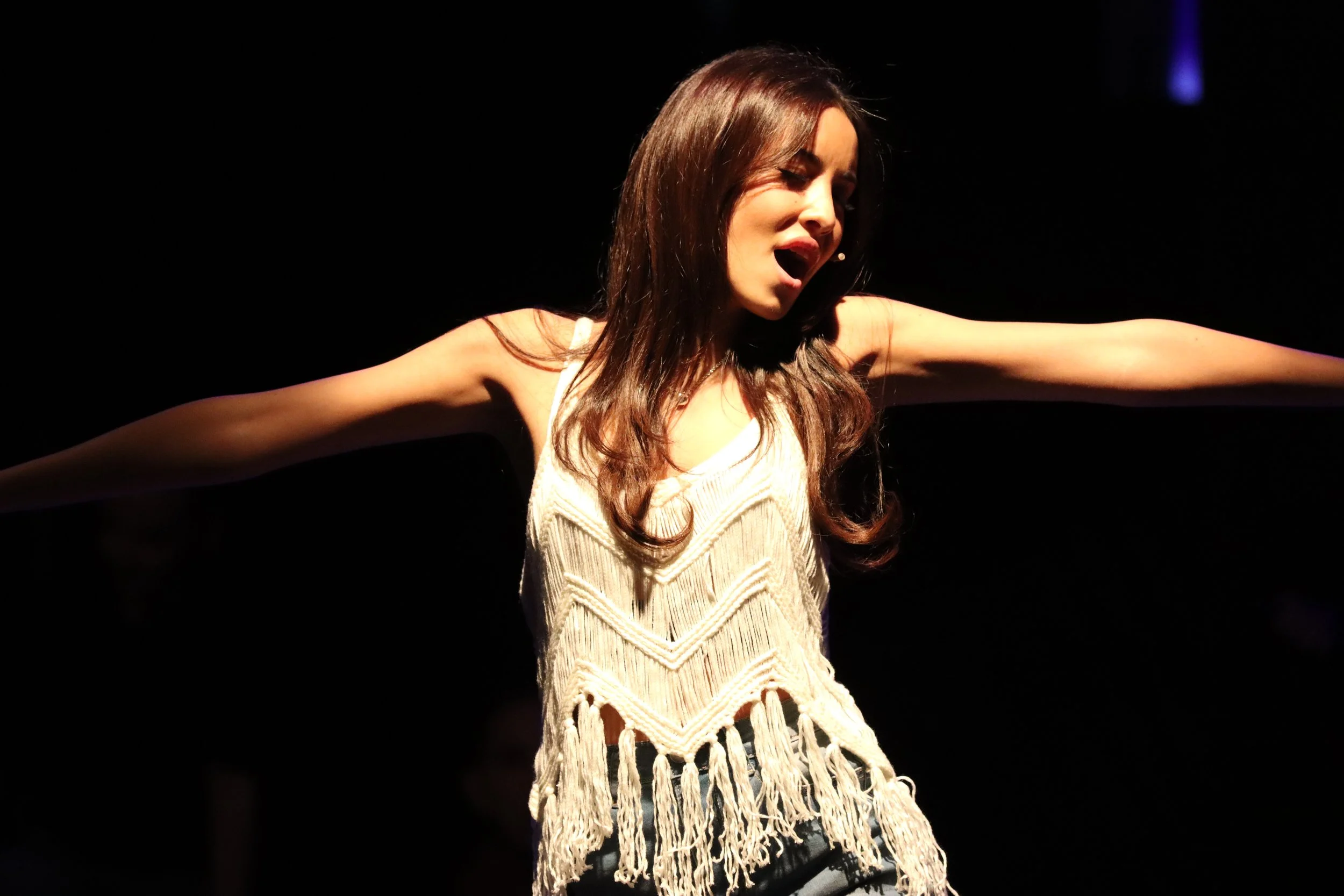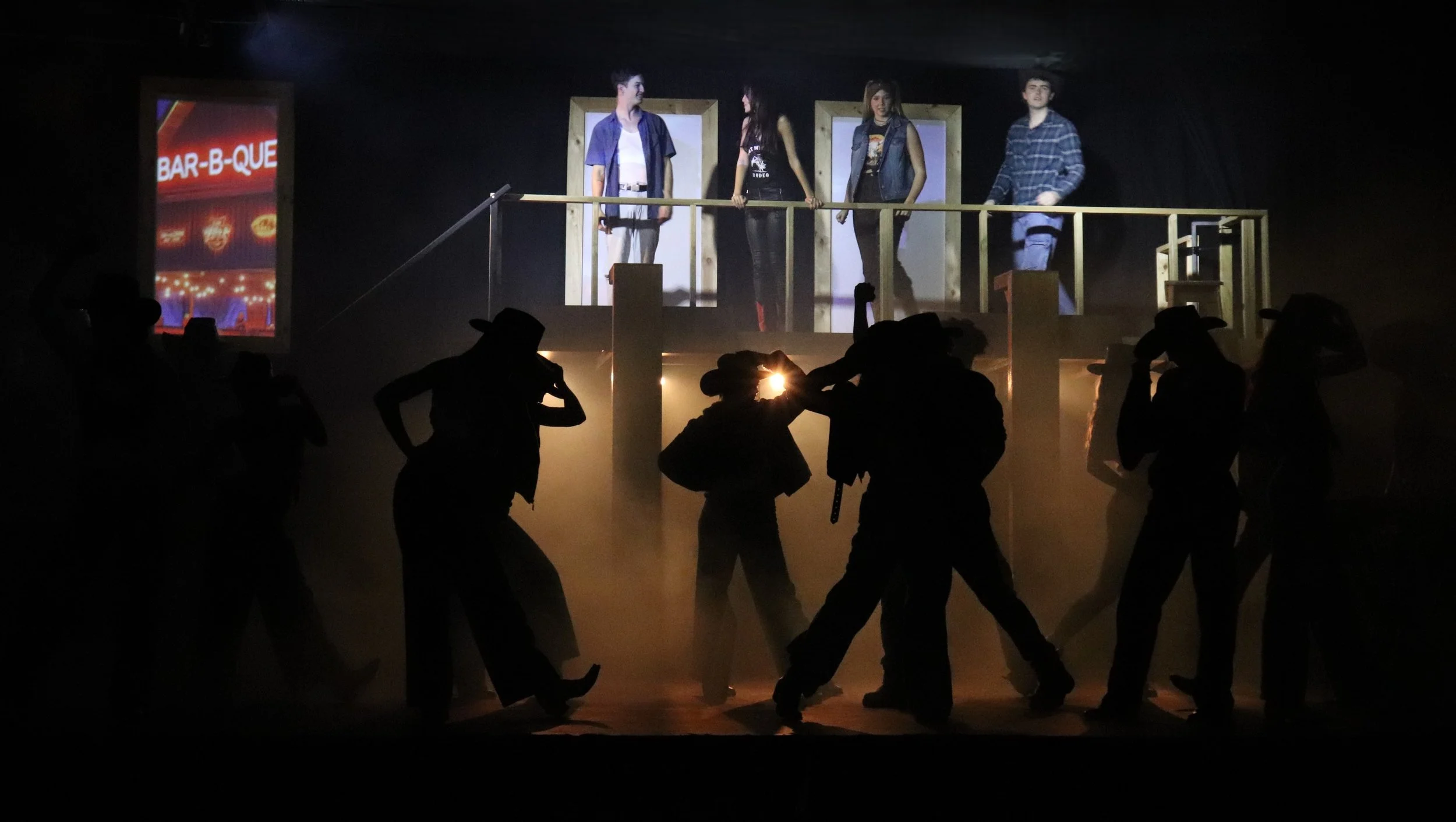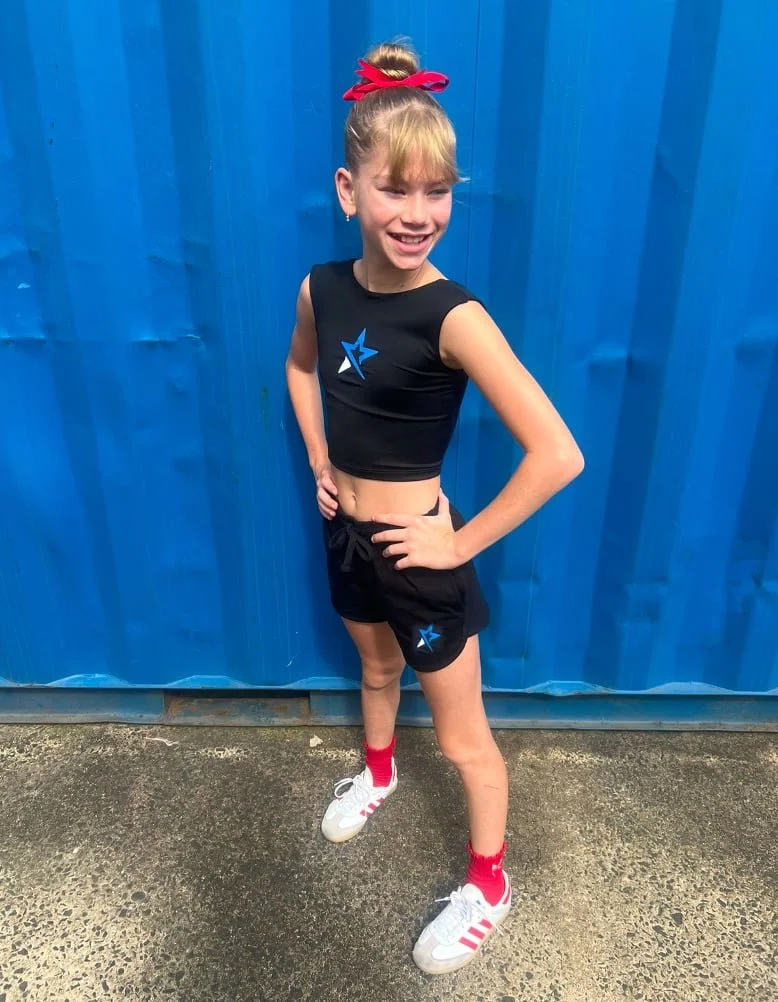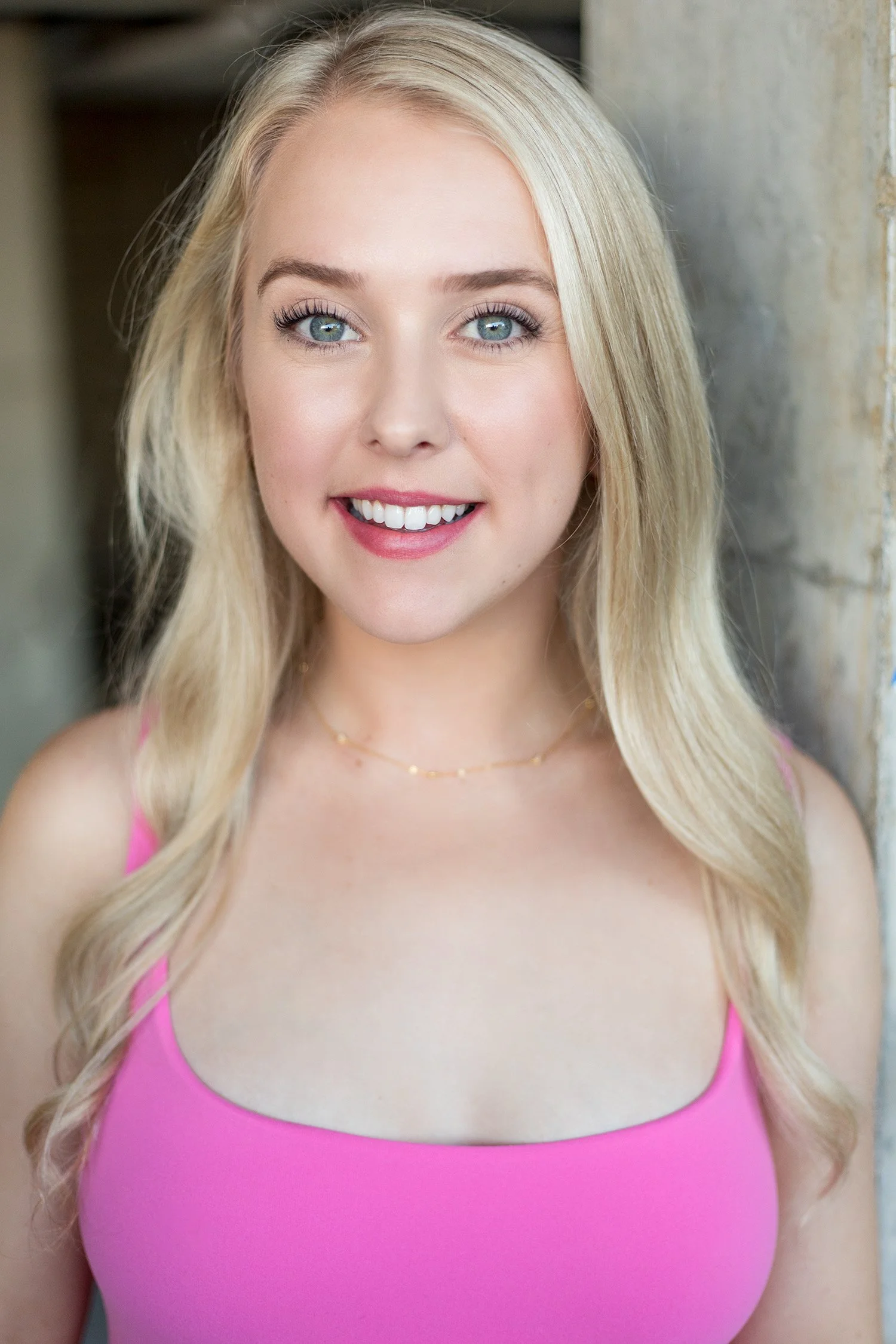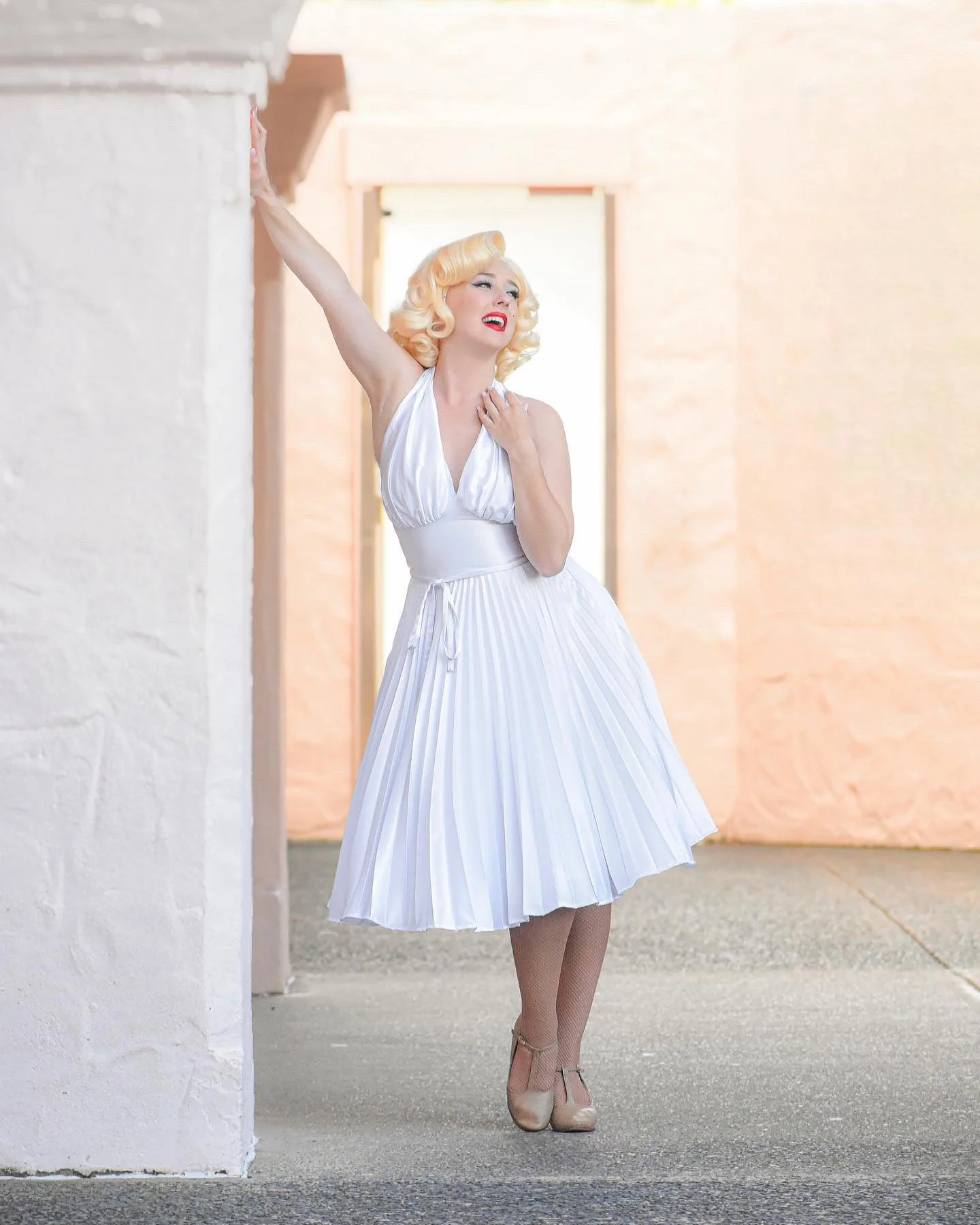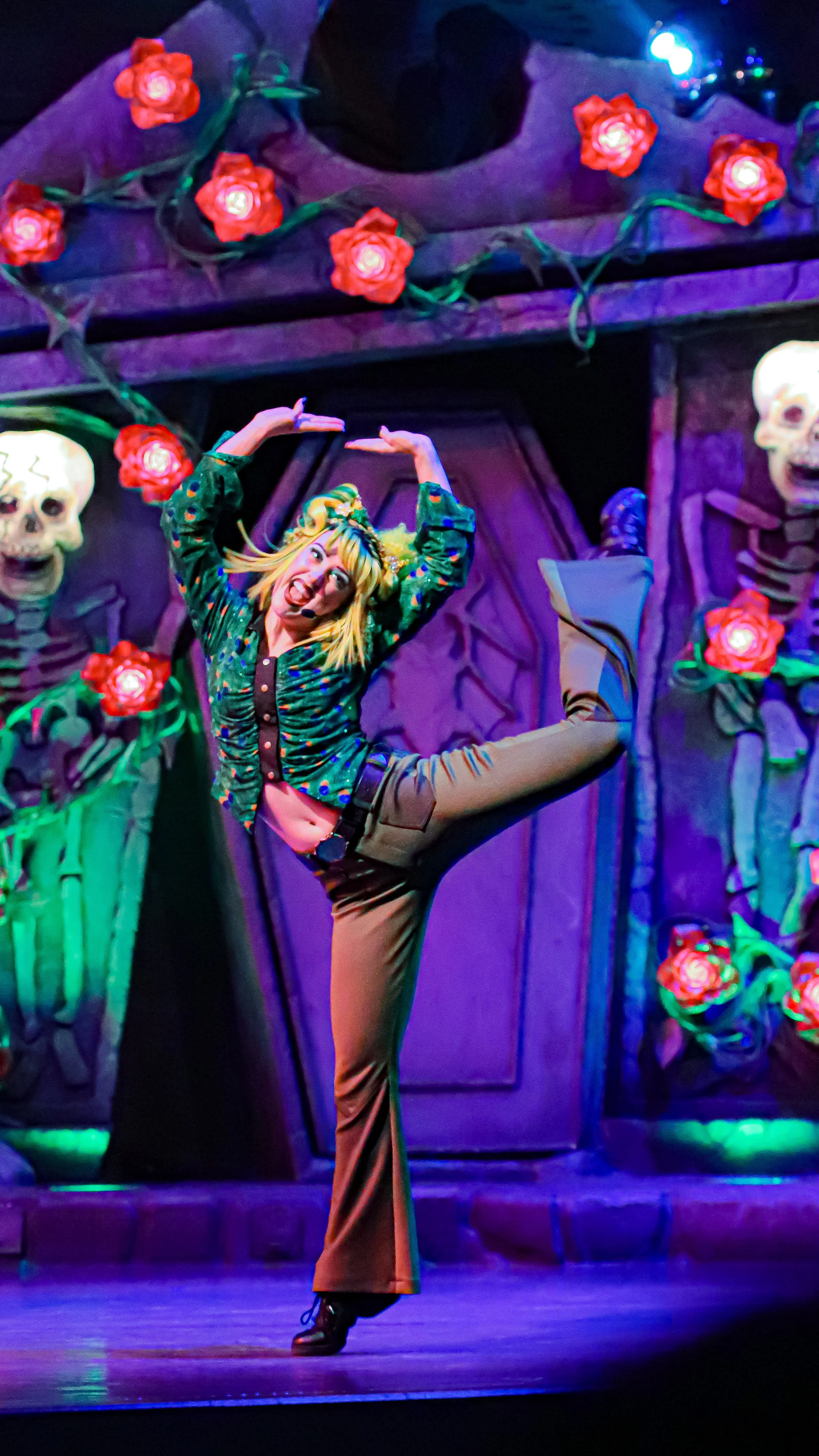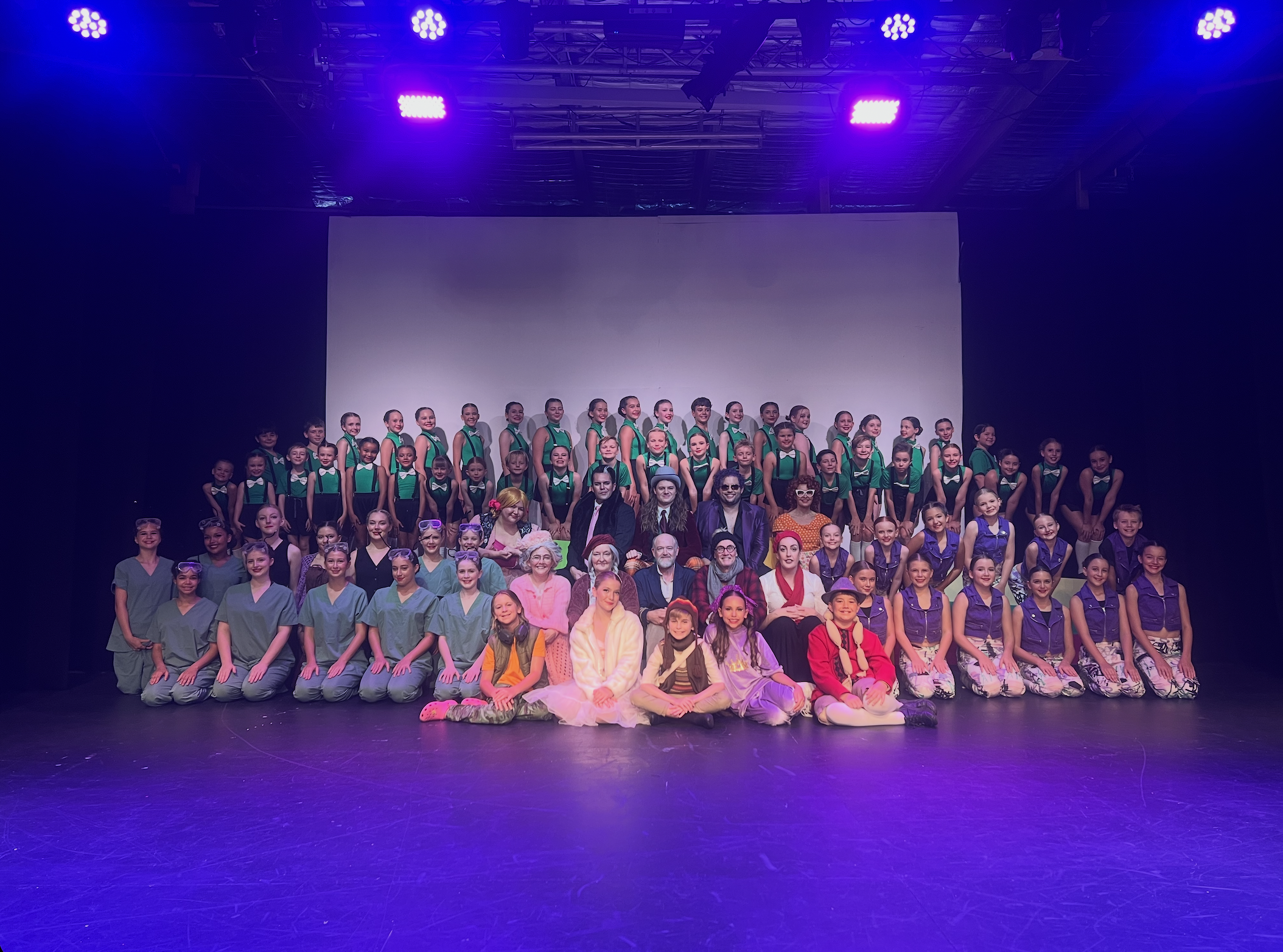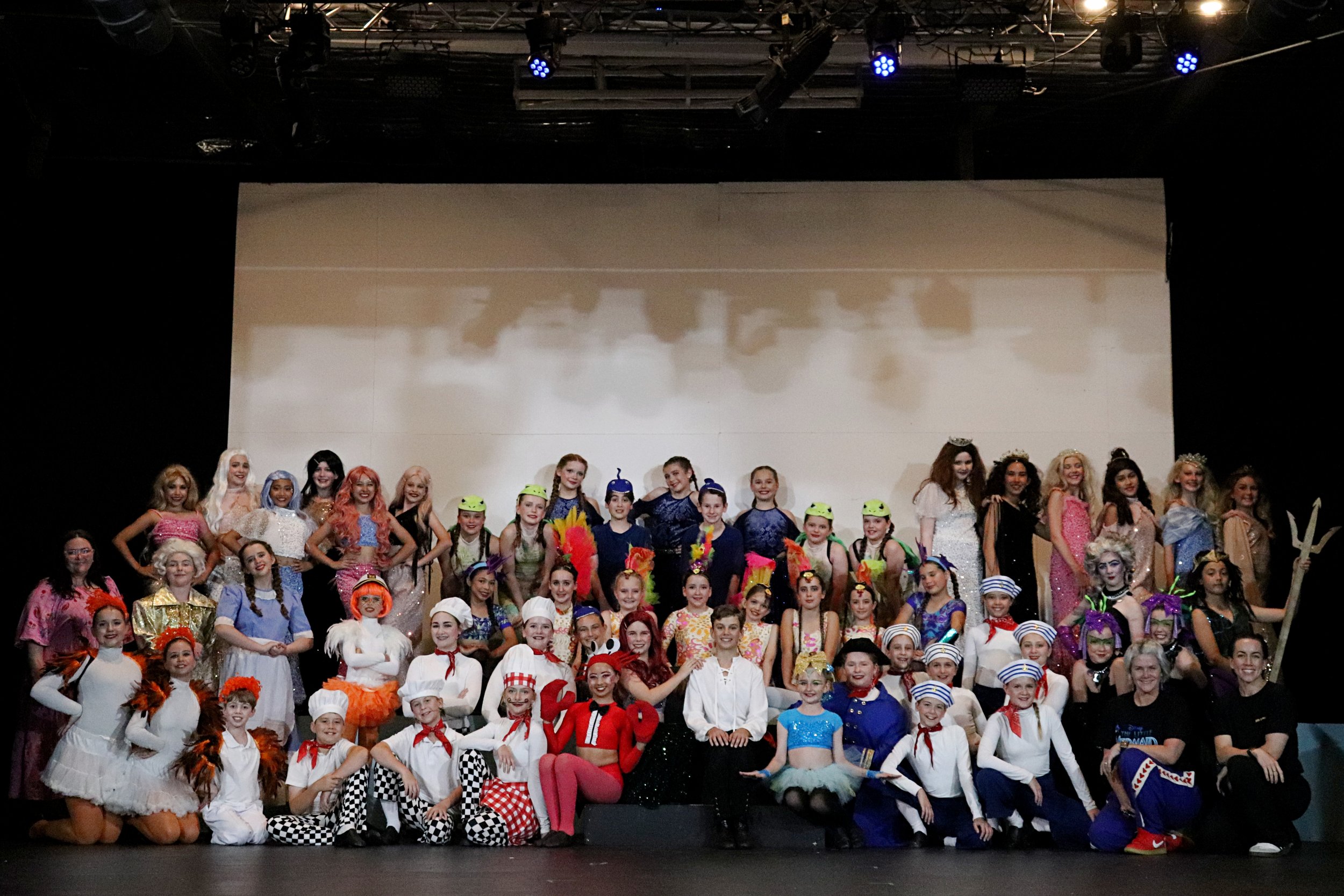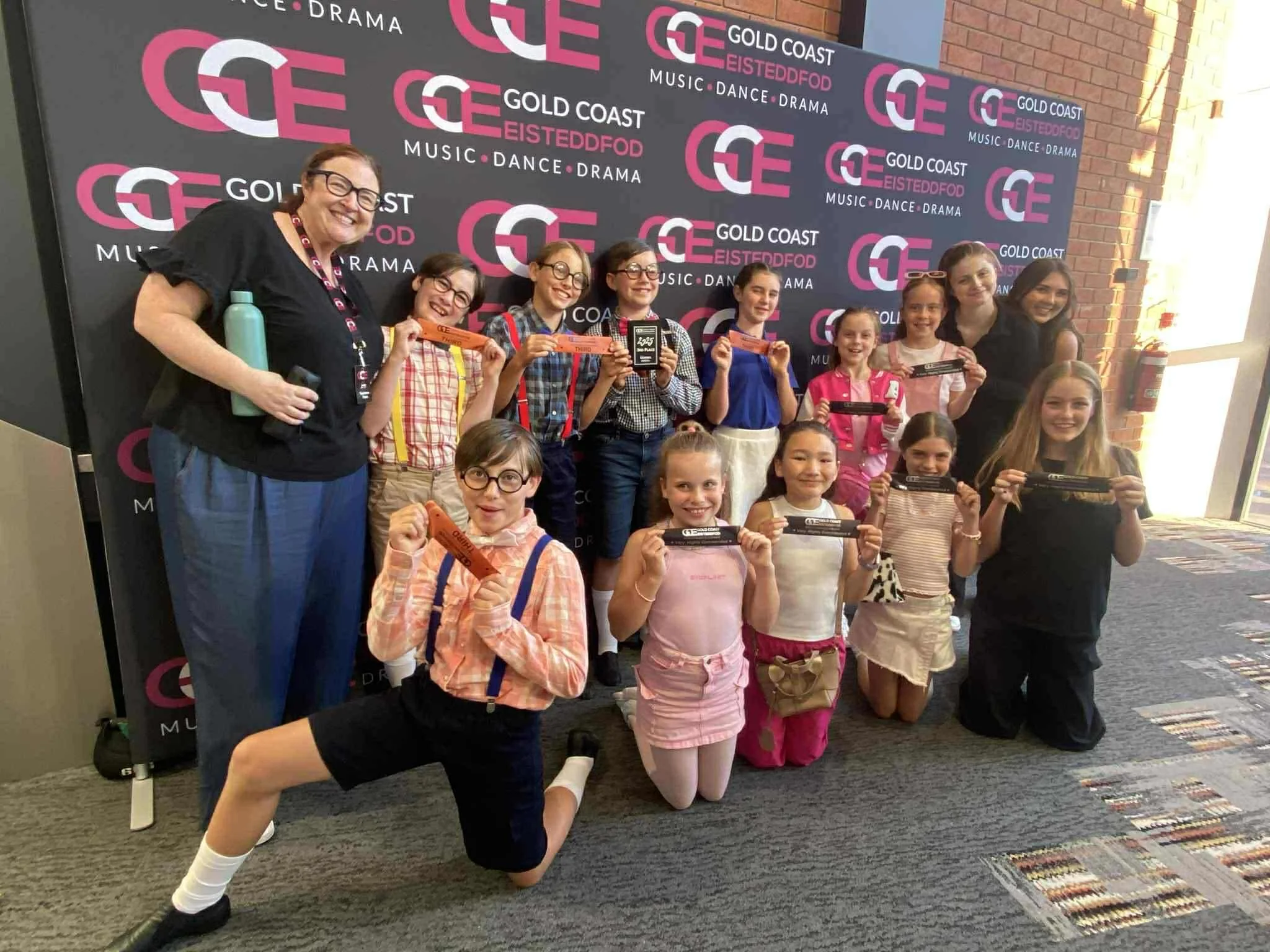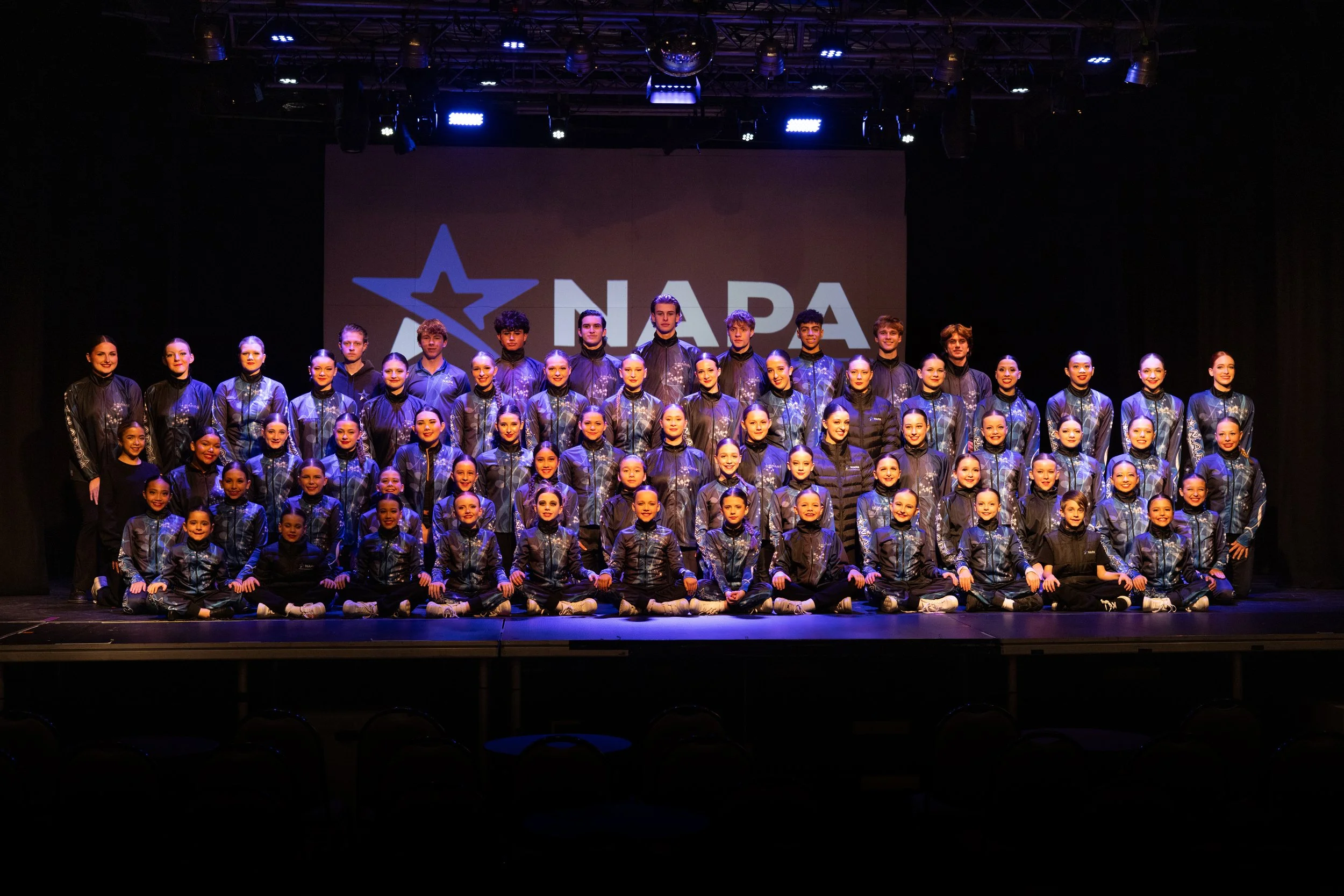NAPA News - Week 8, Term 2, 2025
FROM THE DIRECTOR
The countdown to school holidays is on and it is cold! Please ensure you are sending your child with a jumper or jacket if they finish later in the evening, as we want to keep those muscles warm, especially after dance class. Winter uniforms are on sale for one more week, see our link below.
QUICK REMINDERS
LOST AND FOUND WILL BE DONATED AT END OF TERM - LAST CHANCE TO CHECK
T-SHIRTS HAVE ARRIVED - SEE KIMBERLEY AT RECEPTION
FINAL WINTER UNIFORM ORDERS DUE FRIDAY, JUNE 20
NEWS HIGHLIGHTS
Footloose success!
Congratulations to our Footloose cast and crew on a fabulous season. What an amazing experience for our NAPA College students to be able to perform with such a professional adult cast and crew. These experiences are what set this course apart from other training organisations, as our students are getting industry experience from a young age, setting them up for a successful and long-lasting career in The Arts.
REMINDER: NAPA COLLEGE 2026 PARENT INFO NIGHT
We will be holding an information night for potential new parents and students on June 16th from 6.30pm. If you are interested in attending, please email [email protected] to RSVP. Meet the teachers, gain insight into the course, and meet other College families.
We are excited to be adding two new streams to our full-time program in 2026:
Grade 9&10 - 1 year bridging course to prepare for our Cert IV.
These students will complete a Cert III in Dance
Grade 12 & school leaver - 1 year industry acting course.
For students who have completed our Cert IV in Grade 11, or for school leavers wishing to advance their acting skills before moving into the industry or onto further study.
REMINDER: UNIFORM AND HAIR IN DANCE CLASS
We kindly remind all students to attend their dance classes in the appropriate attire. Students participating in Performance Team classes must wear either their NAPA uniform and Senior Team members may wear their uniform or all-black dancewear. For all other classes, suitable dance clothing is required. Ballet students should be in full ballet uniform, with their hair neatly secured in a bun.
All dancers are expected to have their hair styled in a bun, braids, or similarly tidy fashion. Attending class in street clothes or school uniforms, or with unkempt hair, is not appropriate and may hinder participation.
Wearing the correct uniform and maintaining proper grooming is essential for several reasons:
Safety: Appropriate attire allows instructors to observe alignment and technique, helping to prevent injuries.
Professionalism and discipline: Following a dress code fosters a sense of commitment and respect for the art form.
Focus and unity: Uniformity minimises distractions and helps dancers feel part of a cohesive group.
Freedom of movement: Dancewear is designed to support flexibility and movement, unlike street clothes or school uniforms.
Thank you for supporting a professional and focused learning environment for all dancers.
WEllbeing
You Only Get One Childhood — Don’t Miss It for the Spotlight
In the world of performing arts, starting young can feel like a necessity. From dance classes to vocal training, acting workshops to early auditions — many children begin building their skills before they even hit double digits. And yes, there is real value in that. Early training helps young performers develop discipline, confidence, and technical excellence. It lays a solid foundation for future success, and may even provide incredible professional opportunities within your childhood.
But there’s something just as valuable — and far more fleeting — than career milestones: a happy, healthy, and well-lived childhood.
Childhood Is Not a Rehearsal
There’s a common saying in show business: “You only get one shot.” And while that may be true for some auditions, it’s especially true for childhood. This short, wonder-filled chapter of life can’t be paused, replayed, or re-cast. It is happening right now — and once it’s gone, it doesn’t come back.
For young performers, it’s easy to fall into a rhythm of training, performing, and striving to be “the best.” It can start to feel like every moment should be productive or skill-focused. But children are not machines or mini-adults. They are still growing — physically, mentally, and emotionally — and they need space to just be.
Being a Kid Is a Vital Part of the Journey
Playing outside, building cubby houses, laughing with friends, having sleepovers, making mistakes, being silly, exploring the world without a schedule — these things aren’t a waste of time. They are developmentally essential. This unstructured, joy-filled time builds imagination, emotional intelligence, social skills, and resilience — all of which are crucial tools for any performer.
In fact, some of the world’s best artists draw from a rich inner world that was shaped by their childhood experiences. You can always learn to dance or act better — but the depth and honesty of your performance comes from living fully, not just training constantly.
A Message to Parents
We know you want to support your child’s dreams — and that’s a beautiful thing. The performing arts world is demanding, and it often feels like you have to “start early” or get “ahead of the curve.” But it’s important to regularly pause and ask: At what cost?
Over-scheduling, constant pressure, or an environment that’s focused only on performance can lead to stress, burnout, and even a loss of love for the craft. Children can begin to associate their worth with achievement or applause, which is a heavy burden to carry into adulthood.
Let your child rest. Let them play. Let them be just a kid, even if they also happen to be a passionate young artist. Celebrate their joy as much as their discipline. Create space for fun that has nothing to do with training or auditions. Prioritise mental health and emotional balance alongside their career development.
Balance Is the Key
Encouraging your child to explore their talents is wonderful — but not at the expense of their wellbeing. A well-rounded childhood creates well-rounded performers: those who can draw on rich experiences, who love their craft deeply, and who are less likely to burn out in their teens or twenties.
So take the time to breathe. Say yes to the beach day, the birthday party, the messy baking session, the silly dance in the lounge room. The industry will wait — but childhood won’t.
Give your child the gift of balance. Because in the end, being a child is not a distraction from success — it’s part of what makes success meaningful.
ALUMNI SPOTLIGHT
CHLOE FINLAY
Performer | Vocalist | Show Captain | Super Swing
Years at NAPA: 2015 & 2016 (Plus a very special early appearance in Annie *at Spotlight, 2014!)
Training at NAPA:
Broadway (Musical Theatre)
Tread the Boards (Plays)
Dance
Performance Teams
From her early days in Annie to international stages, Chloe Finlay has carved out an inspiring career grounded in versatility, professionalism, and passion.
After graduating from NAPA, Chloe performed in various Gold Coast productions before booking her first professional contract at just 18, joining the cast at Universal Studios Japan. There, she performed in the Wizarding World of Harry Potter for two years before being promoted to the highly sought-after role of Super Swing—a demanding position that required her to cover nearly every singer/dancer track in the park. She also served as Show Captain, where she led her cast with creative integrity and team spirit.
Returning home post-pandemic, Chloe dazzled audiences at Warner Bros. Movie World as Marilyn Monroe, as well as taking on numerous beloved characters, vocalist gigs, and voiceover roles across Village Roadshow Theme Parks, including Sea World’s Nickelodeon Land.
In 2025, Chloe was invited back to Japan to resume her role as Super Swing—a testament to her reputation and skill. She now continues to perform across a wide variety of productions at USJ.
How did NAPA shape her journey?
“NAPA shaped me into the professional I am today. I rarely feel out of my depth in the professional world because there isn’t much Miss Kimmi and the team didn’t prepare me for. I went into the industry at 18 with an incredible grasp on what is expected—rehearsal etiquette, work ethic, performance quality, and resiliance.”
And perhaps the most validating moment of all:
“Years after booking my first contract, I asked one of my USJ superiors why they took a chance on me at such a young age. He said, ‘I saw NAPA on your CV and knew you’d be fine.’”
Chloe Finlay is living proof that dedication, training, and a great foundation can take you anywhere in the world.
STAFF SPOTLIGHT
JULIA BURRELL
ACTING SPECIALIST
CLASSES — JUNIOR AND PRE-SENIOR FILM + TV
With a background as dynamic as her teaching style, Julia Burrell brings a wealth of experience and industry knowledge to NAPA’s Film and TV program. Originally from New Zealand, Julia began her journey as a dancer—training in over five disciplines and earning her NZAMD qualifications, before performing and competing across New Zealand, Australia, and the USA.
Julia’s passion for storytelling eventually led her to acting, where she has spent over four years training at renowned institutions including NYFA, The Warehouse, Creating Artists, and Acting Mastery. Her screen work includes credits in films such as In Bloom, My Heart Calls for You, Reservation, Chasing Daisies, and a commercial for Top Golf.
In the classroom, Julia specialises in:
🎬 Audition Techniques
🎭 US and RP Accents
🎥 Film & TV Camera Techniques
✨ Performance Concepts for Screen
Julia is known for her calm, encouraging presence and her ability to bring out the best in every student—arming them with the tools and confidence to step in front of the camera and shine. Her combination of technical skill, international experience, and passion for the craft make her an invaluable part of the NAPA team.
PERFORMANCE TIPS
Become a People-Watcher: Observation Is Your Superpower
One of the most powerful tools an actor or performer can develop isn’t found in a script — it’s found in everyday life. Great characters don’t just come from imagination; they come from observation. Watching people closely — how they move, how they react, how they speak — is how you turn a character from words on a page into a living, breathing person.
Why It Matters
Real people have quirks, habits, rhythms, and imperfections. They blink differently. They hold their phones a certain way. They scratch their nose when they’re nervous, or play with their hair when they’re thinking. These little details make your performances believable — and unforgettable.
When you begin to observe the world like an actor, you build a mental library of human behaviour. And that library is what helps you bring depth, authenticity, and nuance to every character you play.
Tips & Strategies for Observation
1. Be Curious, Not Judgemental
Watch people with genuine curiosity — at the shops, on the train, at school, or even in your own family. Notice their behaviour, but don’t criticise or assume. You’re not watching to judge; you’re watching to understand. Everyone has a story — even if they’re just ordering a coffee.
2. Keep a Character Journal
Start a small notebook (or a notes app on your phone) to jot down interesting behaviours or mannerisms you notice. For example:
“Man at café kept checking his watch even though he had nowhere to be.”
“Girl on bus talked with her hands a lot when excited.”
“Dad laughs while shaking his head when he’s proud but pretending he’s not.”
These become gold mines when you’re building a character later.
3. Choose a Focus Each Day
Give yourself a specific goal. One day, focus on how people walk. Another day, notice how different people show emotion. How does someone look when they’re hiding something? When they’re tired? When they’re in love but trying not to show it?
4. Watch in Silence
Try watching a scene from a movie or TV show on mute. Focus only on body language and facial expressions. What do you feel from the actor’s performance, even without words?
5. Mimic Mannerisms Safely
Practice mirroring someone’s walk, voice, or gestures — respectfully and privately, of course. You’re not mocking — you’re learning. Try building a new character around that mannerism. What kind of person would that be? How do they see the world?
6. Observe Yourself Too
Actors often forget they’re part of the human world they’re studying. Notice your own habits. What do you do when you’re nervous, tired, jealous, excited? Use your own truth in performance — it's your most unique tool.
Final Thought: Be a Story Collector
Great performers are great storytellers — and great storytellers are great listeners and observers. The more truth you collect from the world around you, the more truth you can offer your audience on stage or screen.
So next time you’re in a waiting room, in a classroom, or sitting quietly on a park bench — don’t scroll. Watch. Listen. Learn. You’re not just passing time. You’re building characters.









